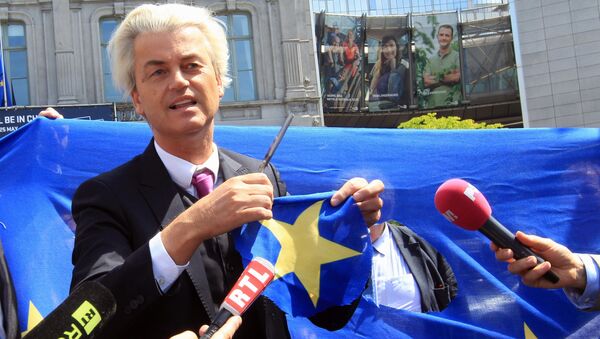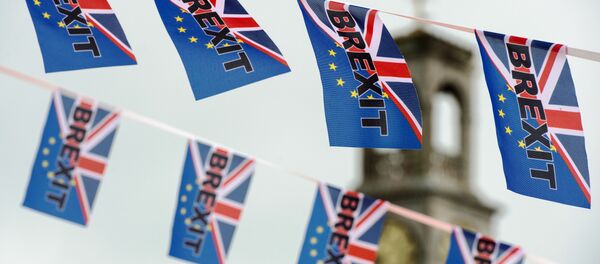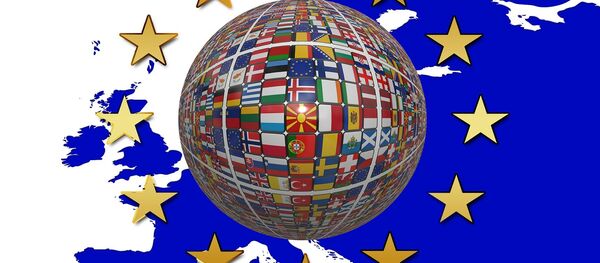The interview came after founder and leader of the Dutch Party for Freedom Geert Wilders called for a referendum on EU membership to be held in the Netherlands; the proposed vote has come to be known as Nexit.
He added that the Netherlands will be able to improve relations with Russia only after it leaves the European Union, which will have an overall positive impact on the country’s future.
Welp, with the upcoming possibility of nexit I shall only say to Netherlands people — stay strong and think deep. #notonexit
— Viktorija (@viktori12544909) 19 августа 2016 г.
Speaking to Sputnik, Konstantin Voronov of the Institute of World Economy and International Relations in Moscow noted that the Party for Freedom remains the third-largest political force in the Netherlands and enjoys growing voter support.
@LeaveEUOfficial @JoKer33817736 now the Netherlands needs to follow. NEXIT as soon as possible
— kennith van santen (@kennith1980) 13 августа 2016 г.
He said that it is still unclear whether a national referendum will be held in the Netherlands, but that the very fact that the party has put forward this initiative is very symptomatic.
"After Brexit, many wondered if it was a [one-off] or a pan-European phenomenon which may finally change the configuration of the EU as a result of a so-called 'domino effect'. As for the Netherlands, the country is at the forefront of these tendencies, which have intensified in the EU," Voronov said.
According to him, many in the Netherlands have already realized the fact that the EU project had come to a standstill and that some Dutch voters are displeased with the EU's format.
"The British referendum was followed by a process of reviewing the European integration project. The Netherlands was the founding country of the European Union, and I think that now they have come to the conclusion that the project has stalled," he said.
Voronov added that in addition to the restrictions imposed by Brussels, the EU countries are now going through a whole array of crises, including those related to migration, the economy and the euro, and experiencing dysfunctions related to the integration of the EU institutions.
"Against this background, countries that have a particular specialization in the international division of labor feel that they might as well do without the integration association. Problems [related to] the 'four freedoms' — free movement of goods, services, capital and people — can be solved within the framework of the European Economic Area," he said.
Party for Freedom leader Geert Wilders, meanwhile, said that "Brussels should not dictate who we can have economic and political relations with" and that "restoring ties with Russia is a priority direction for the traditionally trade oriented country which is what the Netherlands has always been."
"For centuries our countries have benefited from bilateral cooperation despite conflicts. And today lifting the anti-Russian sanctions is a mandatory condition for our positive future," Wilders told the Russian newspaper Izvestia.
The European Union, the United States and some of their allies have introduced several rounds of anti-Russia sanctions since Crimea reunified with Russia in 2014, accusing Moscow of meddling in the Ukrainian conflict. Russia has repeatedly refuted the accusations, warning that the sanctions are counterproductive and undermine regional and global stability.
According to Ron van Dartel, the Dutch ambassador to Russia, the introduction of anti-Russia sanctions by the European Union in 2014 resulted in Dutch exports to Russia decreasing by one third and imports from Russia falling by about a quarter.




